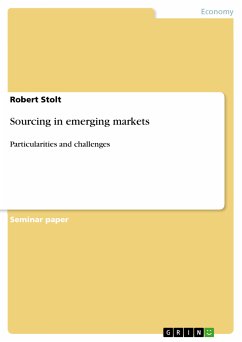Essay from the year 2013 in the subject Business economics - General, grade: 1,7, University of St Andrews (School of Management), language: English, abstract: Strive for market shares, the willingness or necessity to increase revenues or diversify risk can be key drivers for innovative firms in going abroad (Peng, 2009). Usually,these companies favour markets somewhat similar to their already developed, saturated home markets with a large potential customer base and mass purchasing power (London & Hart, 2004; Peng, 2009). The article 'Serving the World's Poor, Profitably' written by C.K. Prahalad and Allen Hammond, published in the Harvard Business Review in September 2002, stretches the tremendous sales potential for multi-national enterprises (MNEs) in doing business with the very poor. It builds on the socio-economic concept of the bottom-ofthe-pyramid (BoP), which refers to nearly four billion potential consumers with an annual income of less than US$ 2,000; that is two-third of the world's population (Prahalad & Hart, 2002)[...]
Dieser Download kann aus rechtlichen Gründen nur mit Rechnungsadresse in A, B, BG, CY, CZ, D, DK, EW, E, FIN, F, GR, HR, H, IRL, I, LT, L, LR, M, NL, PL, P, R, S, SLO, SK ausgeliefert werden.









